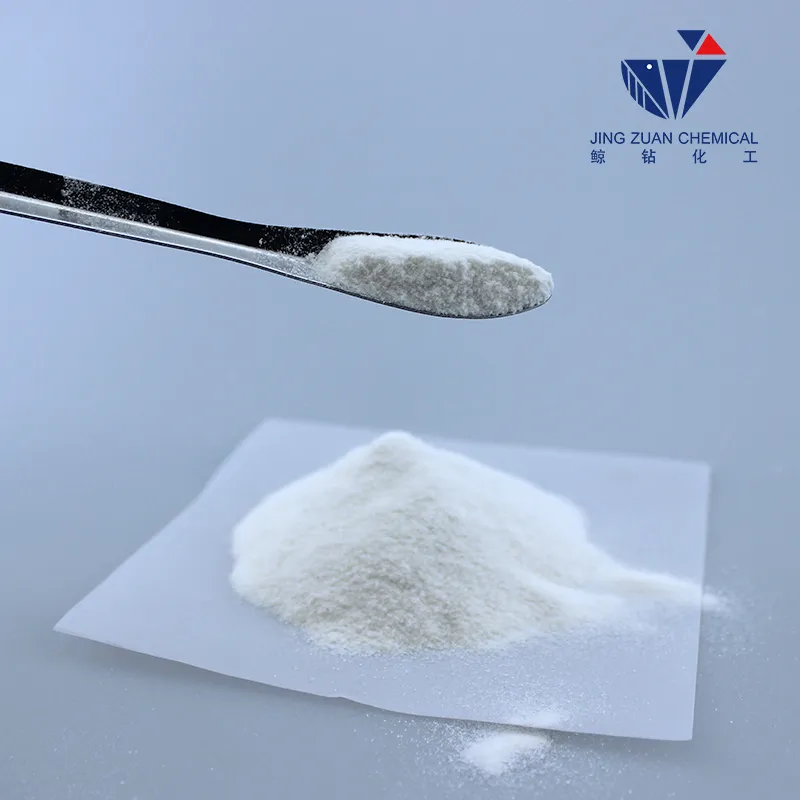
Aug . 19, 2024 17:43 Back to list
Top Manufacturers of Redispersible Polymer Powder for Diverse Applications
Redispersible Polymer Powder Manufacturers An Overview of the Industry
In the ever-evolving world of construction and building materials, redispersible polymer powders (RDPs) have emerged as essential components in various applications, including mortar, adhesives, and tile grouts. These powdered polymers provide enhanced flexibility, adhesion, and water resistance, making them highly sought after by manufacturers across the globe. This article explores the role of redispersible polymer powder manufacturers in the market and the factors driving their demand.
What are Redispersible Polymer Powders?
Redispersible polymer powders are dry, free-flowing powders made from polymers that, when mixed with water, can form stable dispersions. These polymers are typically produced by spray drying emulsions of polymers such as vinyl acetate, ethylene, or styrene-acrylic. The primary purpose of RDPs is to improve the performance of cement-based systems by enhancing their mechanical properties and durability.
Applications of RDPs
RDPs are used in a variety of applications, including
1. Mortars and Adhesives They improve adhesion to various substrates, making them ideal for use in tile adhesives, gypsum plasters, and thin-layer mortars. 2. Renderings and Coatings RDPs provide flexibility and crack resistance, which are crucial in external wall systems where thermal expansion and contraction can cause damage.
3. Self-Leveling Compounds The fluidity and workability of cement mixtures are enhanced with the addition of RDPs, ensuring that they spread evenly and achieve a smooth finish.
redispersible polymer powder manufacturers

The Role of Manufacturers
With the increasing demand for high-quality construction materials, redispersible polymer powder manufacturers play a pivotal role in the industry. They are tasked with supplying consistent, high-performance products to meet the varying needs of their clients. Several factors contribute to the growth and competitiveness of RDP manufacturers
1. Innovation Manufacturers are continually investing in research and development to create new formulations of RDPs that cater to specific application requirements. Customized products can provide advantages such as improved performance in extreme weather conditions or enhanced UV stability.
2. Sustainability As environmental concerns become more prominent, manufacturers are striving to produce greener alternatives. This includes developing RDPs from renewable resources or enhancing the recyclability of end products.
3. Quality Control Ensuring consistent product quality is paramount for manufacturers. Implementing stringent quality control processes helps prevent variations that could affect the performance of construction materials.
4. Global Reach The globalization of the construction industry means that manufacturers must navigate various regulations and standards across different markets. Companies that adapt to these requirements can expand their reach and tap into emerging markets.
Conclusion
Redispersible polymer powders have become crucial in improving the performance and durability of construction materials. As the industry grows, the role of manufacturers becomes increasingly significant. With a focus on innovation, sustainability, and quality, RDP manufacturers are well-positioned to meet the demands of a changing marketplace. As construction practices continue to evolve, the contributions of these manufacturers will play a vital role in shaping the future of building materials, ultimately leading to more resilient structures and sustainable development.
-
Versatile Hpmc Uses in Different Industries
NewsJun.19,2025
-
Redispersible Powder's Role in Enhancing Durability of Construction Products
NewsJun.19,2025
-
Hydroxyethyl Cellulose Applications Driving Green Industrial Processes
NewsJun.19,2025
-
Exploring Different Redispersible Polymer Powder
NewsJun.19,2025
-
Choosing the Right Mortar Bonding Agent
NewsJun.19,2025
-
Applications and Significance of China Hpmc in Modern Industries
NewsJun.19,2025







